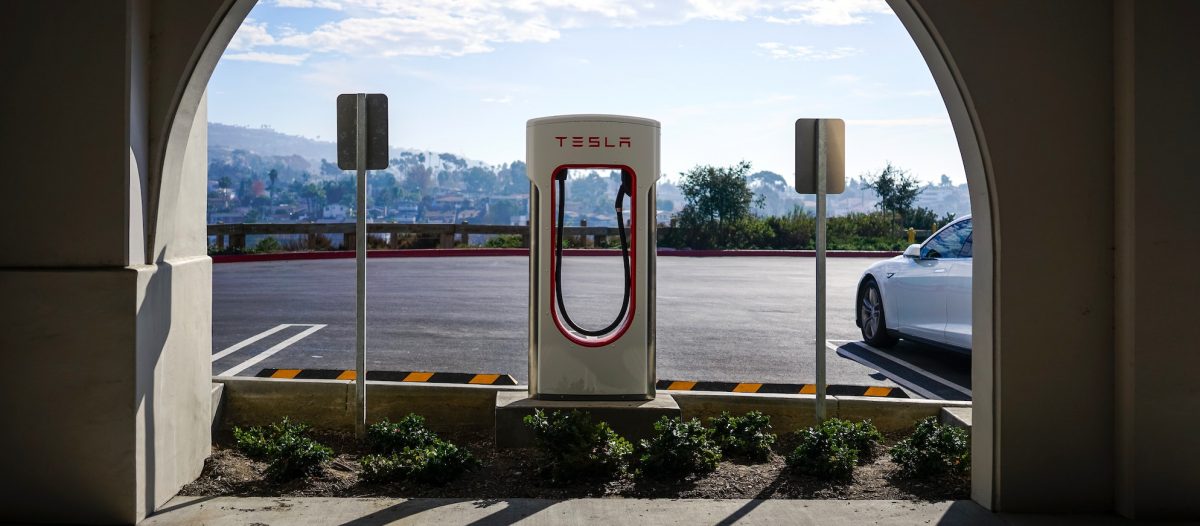In the public imagination, the electric car – and the hybrid car before it – has been hailed as a key solution for consumers to reduce their environmental impact and help slow climate change.
As one indicator, web searches for Tesla are up over 450% from 2012 to 2018 peak, and the company is now valued at over US$54 billion on the stock market. The cars are selling, too: Tesla sales are up seven-fold from Q3 2015 to Q3 2018.
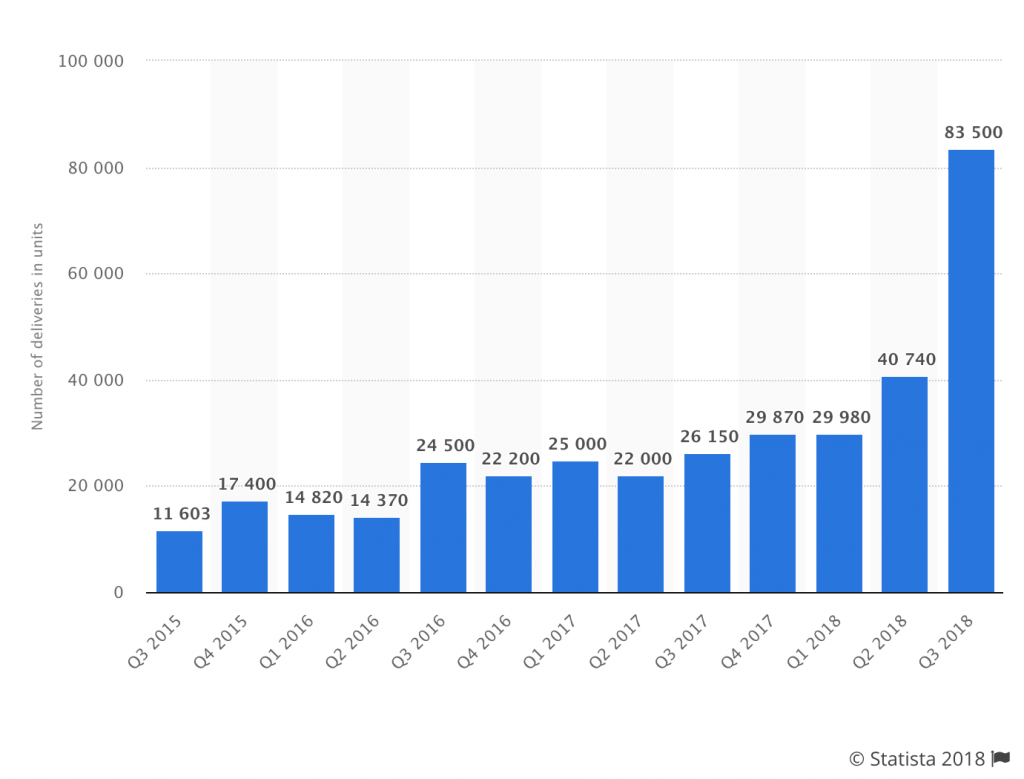
Table of Contents
Electrified enthusiasm
Electric cars make a difference to emissions, at least locally. The emissions from driving an electric car can be as low as zero, if it is charged from fully renewable electricity sources.
The picture shifts somewhat when embodied energy and lifetime emissions are considered since electric cars and their batteries continue to be very resource intensive to manufacture. Still, in most cases an electric car is slightly less bad for the living planet than a comparable car with an internal combustion engine – if you can afford to buy one.
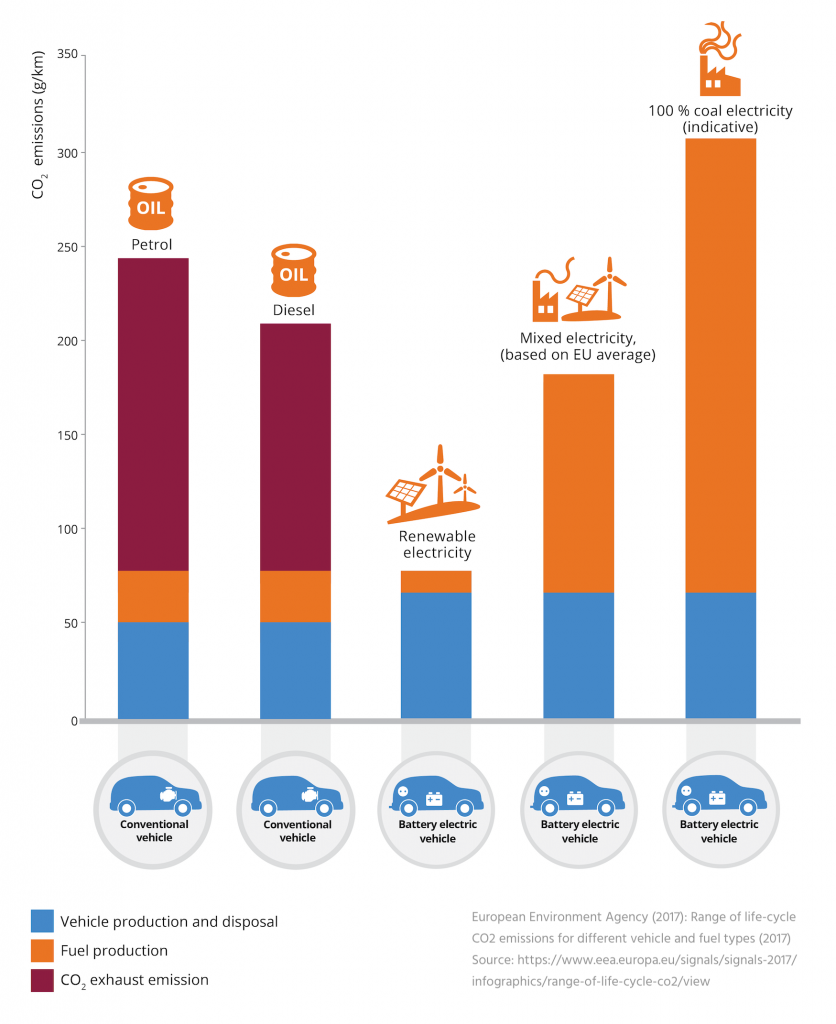
Not a real transition to electric but rather an endless growth of the automobile in general
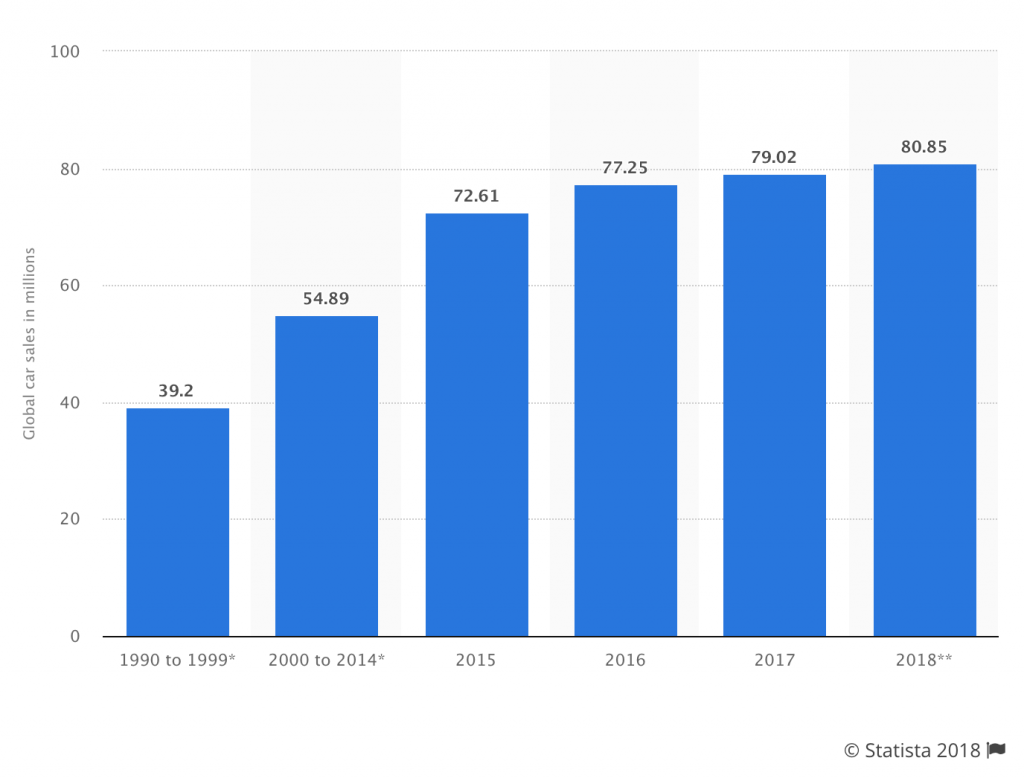
Astonishingly, the world has over 1 billion passenger cars in use today with more than 80 million new cars expected to be sold in 2018.
The sales growth of electric cars is aggressive but they don’t particularly displace fossil fuel powered cars: the sales of internal combustion engined cars continue to grow as well.
There were some 1.9 million battery electric vehicles in use globally in 2017. Therefore, in 2017, electric cars represented less than 0.2% of all vehicles in active use globally.
The IEA expects electric vehicles to top 300 million shortly after 2040, whilst Forbes predicts that there will be ‘well over 2 billion [vehicles] by 2040’. This would mean that in the next 20 years or so, we would still have 1.7 billion, or 85%, of all vehicles powered by fossil fuels, continuing to belch out CO2 and other emissions for decades to come.
This is completely out of line with IPCC’s target of net zero emissions by around 2050.
The car is but a small part of a larger flawed system
There is one aspect that proponents of electric cars rarely raise and discuss, which is the broader system that electric cars are a part of.
When we think of the electric car as a solution to our transport sustainability crisis, we tend to forget that our cars primarily exist to connect things, things that require immense extraction and fossil fuel energy to build, run and maintain:
- roads
- buildings
- factories
- shopping centres
- suburbs
- cities
- airports
- and so on.
It is not just the car itself that is unsustainable; it is our entire way of life and the system that underpins it.
A talisman of false hope
I am not against electric cars – I do think they can slightly reduce unsustainability. But overall, they are too little too late. An electric car is still a car, and permeates our car-dependency the same as any other car.
‘But every action counts!’, you might exclaim. Yes, that is correct – but only if there is also a concerted effort to solve the deeper systemic issues. Focusing solely on individual action is a dangerous distraction.
For there is a risk, a moral hazard if you will: by switching from a regular car to electric I might think that I am making a real difference, however this act does not in any way require me to question my way of life – or the system in which it takes place. Electric cars make the promise that I can consume my way out of a predicament caused by consumption in the first place.
To have any chance of slowing down climate breakdown rather than accelerating it further, we need to change our entire way of life, and the system that it depends on. For anything less than that, the hour is too late.
Electric cars give us a sense that we can have change without having to change at all. They are a talisman of false hope.
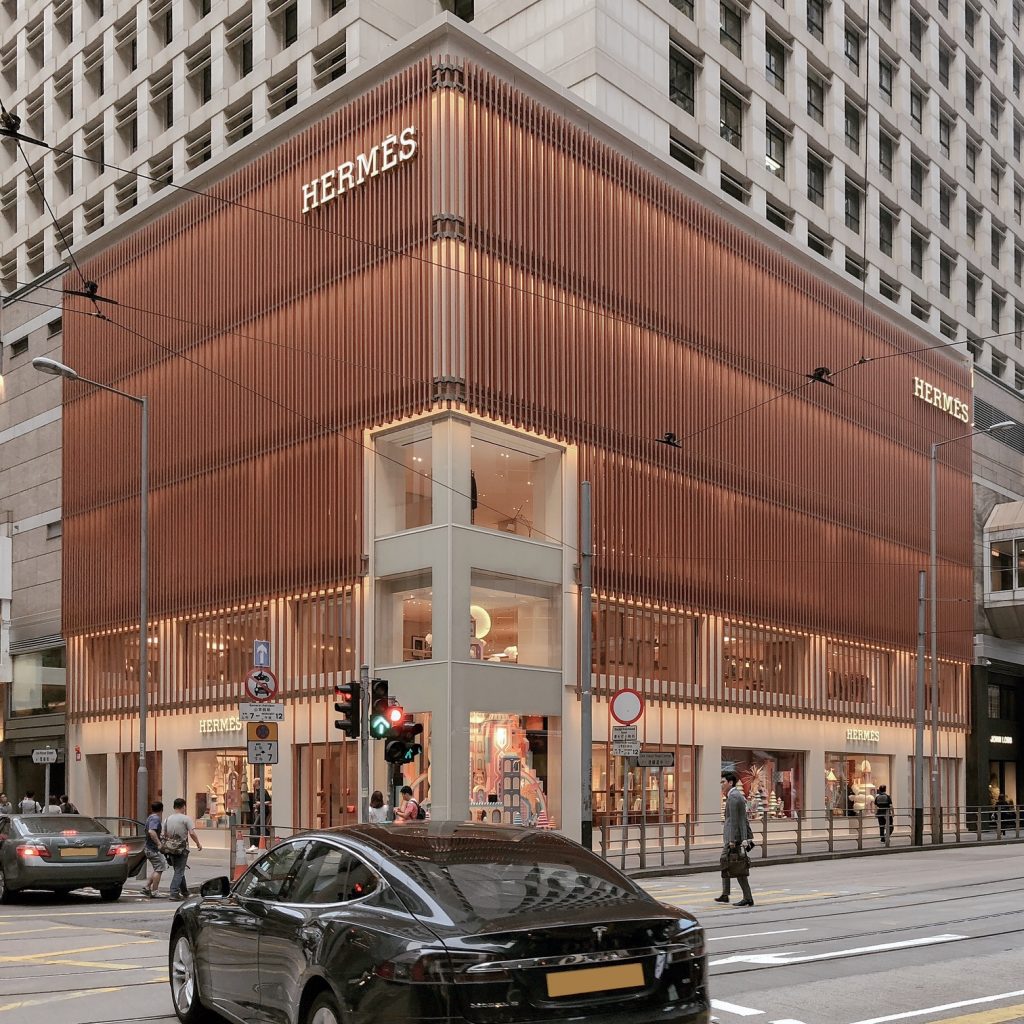
References
- Hero image by Matt Henry
- Statista: Tesla: vehicle deliveries by quarter 2018
- European Environment Agency (2017): Range of life-cycle CO2 emissions for different vehicle and fuel types
- Statista: Global car sales 1990-2018
- Statista: Worldwide number of electric cars 2017
- Forbes (2018): Will Electric Cars Rule The World In Time To Make A Difference?
- International Energy Agency: World Energy Outlook 2017
- André Gorz (1973): The social ideology of the motorcar
- Martin Lukacs (2017): Neoliberalism has conned us into fighting climate change as individuals
- Image: Tesla at Hermes by Modern Affliction
